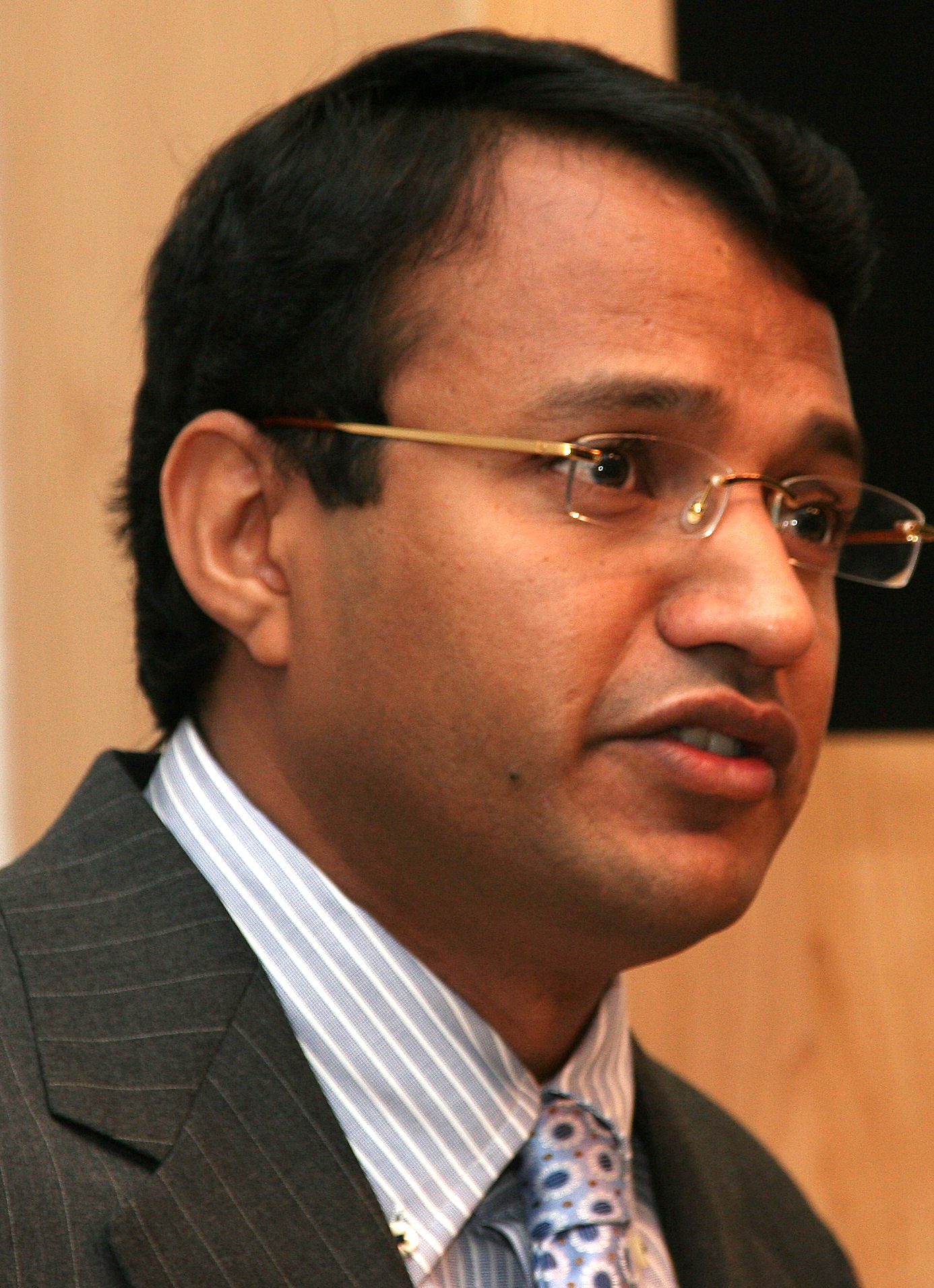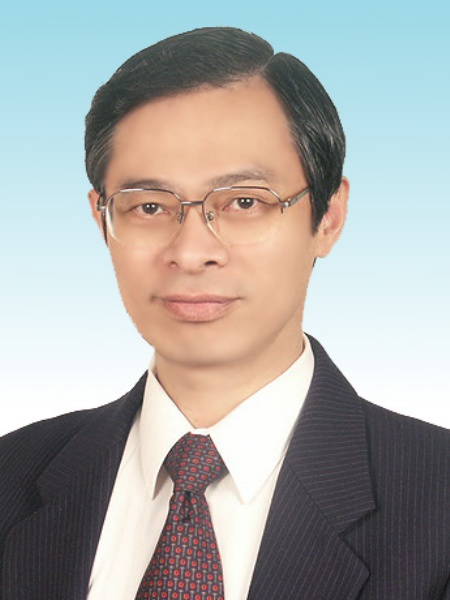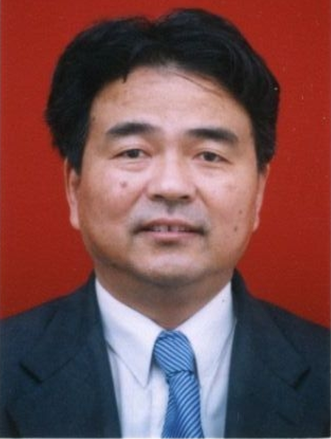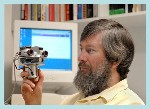Keynote Speeches
|
|
|
|
|
| Topic: | Nature Inspired Heuristics: Quo Vadis |
| Abstract: | In this talk, we present the importance of nature inspired meta-heuristic techniques for solving some of the complex global optimization problems. We start with the review of some of the popular algorithms based on Evolution and Swarm Intelligence and then we focus on some of the recent heuristics based on Foraging (Bacterial foraging optimization) and Music (Harmony search). Using Empirical studies, we illustrate the performance of these algorithms for solving global optimization problems. |
| Biography: | Ajith's research and development experience includes nearly 20 years in the Industry and Academia. He works in a multi-disciplinary environment involving machine intelligence, network security, sensor networks, e-commerce, Web intelligence, Web services, computational grids, data mining and applied to various real world problems. He has given more than 40 plenary lectures and conference tutorials in these areas. He has published over 600+ publications and some of the works have also won best paper awards at International conferences and also received several citations. He Co-Chairs the IEEE SMC Technical Committee on Soft Computing. Currently he is also coordinating the activities of the Machine Intelligence Research Labs (MIR Labs), International Scientific Network of Excellence, which has members from over 60 countries. He has a world wide academic experience with formal appointments in Monash University, Australia; Oklahoma State University, USA; Chung-Ang University, Seoul; Jinan University, China; Rovira i Virgili University, Spain; Dalian Maritime University, China; Yonsei University, Seoul and Open University of Catalonia, Spain, National Institute of Applied Sciences (INSA), France and Norwegian University of Science and Technology (NTNU), Norway. For about 2.5 years, he was working under the Institute of Information Technology Advancement (IITA) Professorship Program funded by the South Korean Government. He received Ph.D. degree in Computer Science from Monash University, Australia and a Master of Science degree from Nanyang Technological University, Singapore. He serves the editorial board of several reputed International journals and has also guest edited over 35 special issues on various topics. He is actively involved in the Hybrid Intelligent Systems (HIS); Intelligent Systems Design and Applications (ISDA); Information Assurance and Security (IAS); and Next Generation Web Services Practices (NWeSP) series of International conferences, besides other conferences. He is a Senior Member of IEEE , IEEE Systems Man and Cybernetics Society, IEEE Computer Society, IET (UK), IEAust (Australia) etc. More information at: http://www.softcomputing.net |
|
|
|
| Topic: | Capturing Semantics: Knowledge-Based or Machine Learning Approach |
| Abstract: | In natural language processing, many machine learning models, such as maximum entropy, conditional random fields, are based on feature selection and parameter tuning. If the test set is not sufficiently correlated with the training set, the model is less likely to perform well. However, in practice, it looks as though the training set is never large enough to cover most test cases, especially those in user domains. Although adaptation would usually ease the problem a little, current machine learning models do not seem to catch the semantics or the context in free texts, which makes them less portable. After all these years, the following questions remain unanswered: "What kind of knowledge should be extracted from a training set to make the model more general?" "How do we minimize the laborious human annotation task on the training set?" "How do we combine knowledge from heterogeneous sources effectively?" "Which approach is better: knowledge-based or machine learning?" In this talk we shall discuss strategies that attempt to tackle these challenges. |
| Biography: | Wen-Lian Hsu received a B.S. in Mathematics from National Taiwan University, a Ph.D. in operations research from Cornell University. His earlier work was on graph algorithms. He then applied similar techniques to tackle computational problems in biology and natural language. Dr. Hsu is particularly interested in applying natural language processing techniques to the understanding of DNA sequences as well as protein sequences, structures and functions and also to biological literature mining. He received many awards from the National Science Council, including the Distinguished Research Award in 1991, 1994, 1996 and the Appointed Distinguished Research fellow Award in 2005. He received the first K. T. Li Research Breakthrough Award in 1999, the IEEE Fellow in 2006, the Teco Technology Award in 2008, and the Outstanding Research Award of Pan Wen Yuan Foundation. He has been the president of the Artificial Intelligence Society in Taiwan from 2001 to 2002 and is currently the Director of the TIGP Bioinformatics Program in Academia Sinica. |
|
|
|
| Topic: | Technology and Application of Product Evolutionary Design |
| Abstract: | Product customization has been recognized as an effective means to implement mass cus-tomization (MC). A new theory and method for MC-oriented evolutionary design of configuration product is presented based on the study of developing law of evolutionary design in integrated envi-ronment, which focuses on the innovation and reuse properties of configuration product. The key technologies for general requirement modeling in quick response to customer requirement, multi-level stepwise configuration optimization driven by customer requirement and evolutionary deduction of product variable structure based on configuration association are thoroughly investigated. The suc-cessful application of the presented method in the development of real-life products demonstrates its utility, flexibility and robusticity. |
| Biography: |
Prof. Jianrong Tan is an academician of Chinese Academy of Engineering. He obtained his master's degree from Huazhong University of Science and Technology, China and his Ph.D. from Zhejiang University, China, respectively. He is currently a professor of Zhejiang University, the dean of Department of Mechanical Engineering at Zhejiang University and a vice director of State Key Laboratory of CAD&CG, China. His research interests mainly include virtual reality and its applications in product design, digital design and manufacture, visual computing. He received the support of National Outstanding Young Scientists Foundation of NSFC in 1995 and has completed 25 important research projects, published 142 academic papers and 8 research monographs. He Won 2 items of second prizes of National Award for Science and Technology Progress of China in 2004 and 2006, respectively. |
|
|
|
| Topic: | Evolution of an Intelligent Agent |
| Abstract: | In this talk we discuss a thirty year research focus on evolutionary and unsupervised learning techniques for the development of grounded natural language learning agent. |
| Biography: | Prof. David M W Powers is Director of the Artificial Intelligence and Knowledge Discovery Laboratories at the Flinders University of South Australia, and program leader of the programs in Assistive Technology, Artificial Intelligence and Language Technology. |



